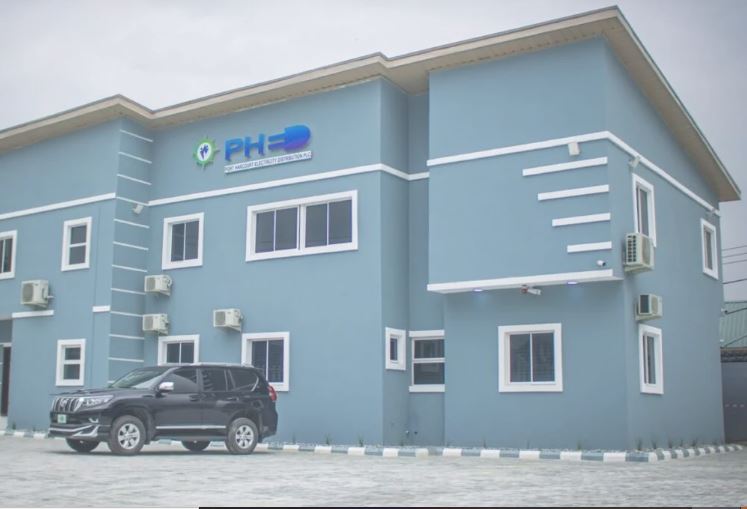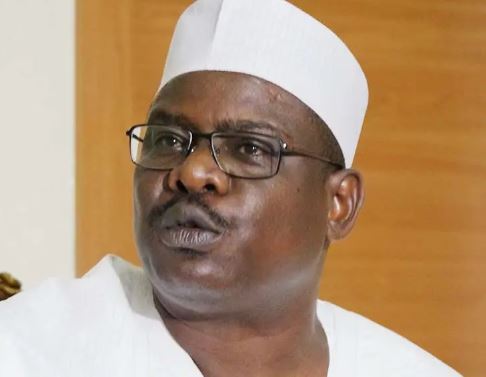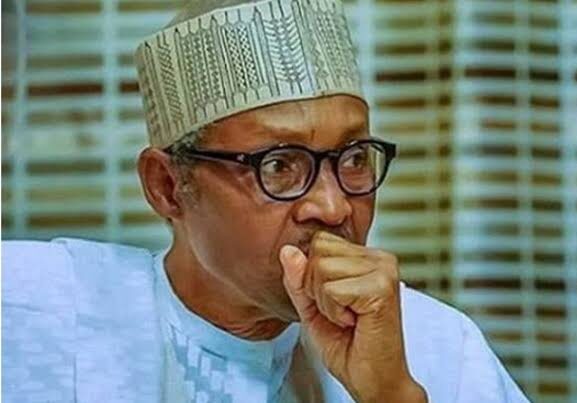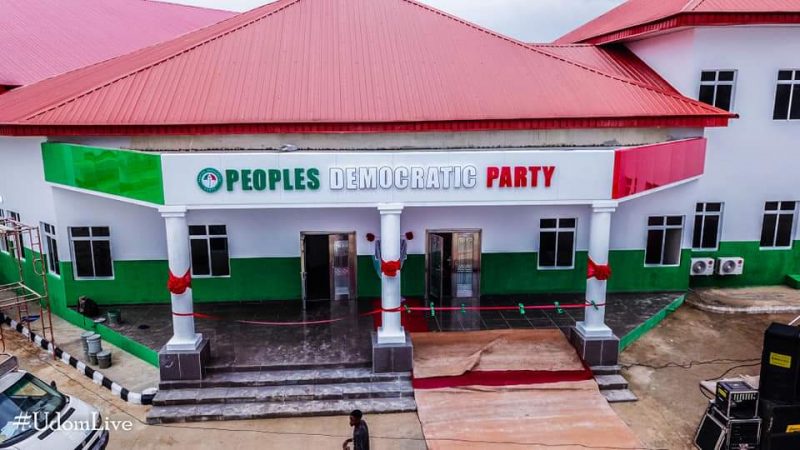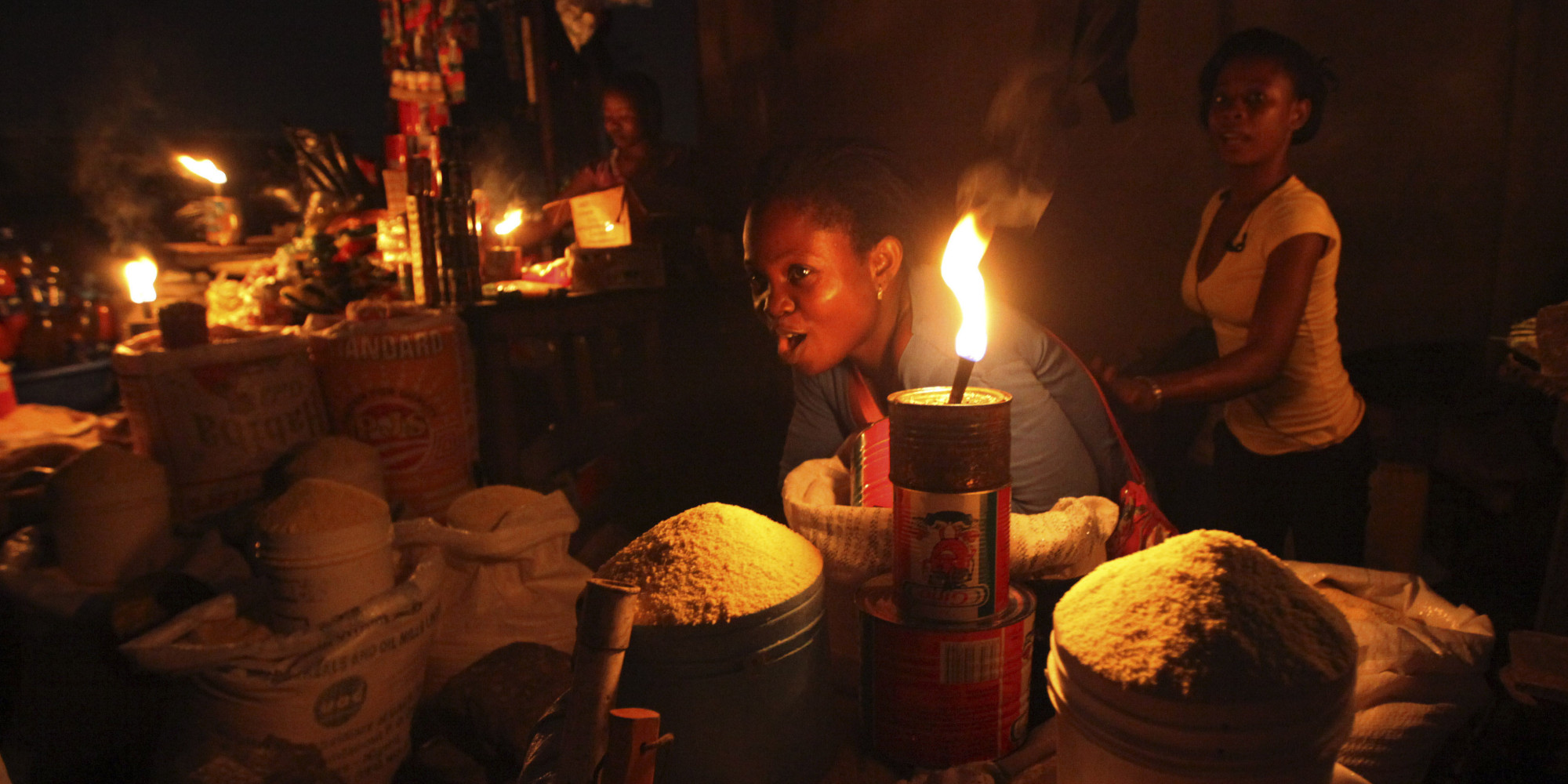…says timing of new tariff, new PMS price coincidental
President Muhammadu Buhari on Monday touched on the recent service based tariff adjustment by electricity distribution companies (DisCos) in the country.
TheNewsGuru.com (TNG) reports Buhari as saying the recent service based tariff adjustment by the Discos was a source of concern.
The President made these comments at the first year ministerial performance review retreat at the State House conference centre in Abuja.
He said so far to keep the industry going, the nation had spent almost 1.7 trillion, especially by way of supplementing tariffs shortfalls, and that there was no more resources to continue in this way.
Buhari said it would be grossly irresponsible to borrrow to subsidize a generation and distribution which are both privatized.
“Let me say frankly that like many Nigerians I have been very unhappy about the quality of service given by the Discos, but there are many constraints including poor transmission capacity and distribution capacity.
“I have already signed off on the first phase of the Siemens project to address many of these issues.
“Because of the problems with the privatization exercise, government has had to keep supporting the largely privatized electricity industry.
“So far to keep the industry going we have spent almost 1.7 trillion, especially by way of supplementing tariffs shortfalls.
“We do not have the resources at this point to continue in this way and it will be grossly irresponsible to borrrow to subsidize a generation and distribution which are both privatized.
“But we also have a duty to ensure that the large majority of those who cannot afford to pay cost reflective tariffs are protected from increases,” he said.
The President said the Nigerian Electricity Regulatory Commission (NERC), the industry regulator therefore approved that tariff adjustments had to be made but only on the basis of guaranteed improvement in service.
“Under this new arrangement, only customers who are guaranteed a minimum of 12 hours of power and above can have their tariffs adjusted.
“Those who get less than 12 hours supply, or the Band D and E Customers MUST be maintained on lifeline tariffs, meaning that they will experience no increase. This is the largest group of customers,” Buhari explained.
He went further to say that the government has also taken notice of the complaints about arbitrary estimated billing.
“Accordingly, a mass metering program is being undertaken to provide meters for over 5 million Nigerians, largely driven by preferred procurement from local manufacturers – creating thousands of jobs in the process.
“NERC has also committed to strictly enforcing the capping regulation which will ensure that unmetered customers are not charged beyond the metered customers in their neighbourhood. In other words no more estimated billings,” he said.
Buhari also stated that the process of providing financing support through the CBN for manufacturers and retailers of off grid solar home systems and mini-grids who are to provide the systems had begun.
He stressed that the five million systems under the ESP’s Solar Power Strategy will produce 250,000 jobs and impact up to 25 million beneficiaries through the installation.
“In addressing the power problems we must not forget that most Nigerians are not even connected to electricity at all. So as part of the Economic Sustainability Plan, we are providing Solar home systems to 5 million Nigerian households in the next 12 months.
“We have already begun the process of providing financing support through the CBN for manufacturers and retailers of Off Grid Solar Home Systems and Mini-Grids who are to provide the systems.
“The Five million systems under the ESP’s Solar Power Strategy will produce 250,000 jobs and impact up to 25 million beneficiaries through the installation.
“This means that more Nigerians will have access to electricity via a reliable and sustainable solar system.
“The support to Solar Home System manufacturers and the bulk procurement of local meters will create over 300,000 local jobs while ensuring that we set Nigeria on a path to full electrification.
“The tariff review is not about the increase, which will only affect the top electricity consumers, but establishing a system which will definitely lead to improved service for all at a fair and reasonable price.
“There has been some concern expressed about the timing of these two necessary adjustments.
“It is important to stress that this is coincidental in the sense that the deregulation of PMS prices happened quite some time ago, it was announced on 18 March 2020 and the price moderation that took place at the beginning of this month was just part of the on-going monthly adjustments to global crude oil prices.
“Similarly, the review of service-based electricity tariffs was scheduled to start at the beginning of July but was put on hold to enable further studies and proper arrangements to be made.
“This government is not insensitive to the current economic difficulties our people are going through and the very tough economic situation we face as a nation, and we certainly will not inflict hardship on our people.
“But we are convinced that if we stay focused on our plans, a brighter andmore prosperous days will come soon. “Ministers and senior officials must accordingly ensure the vigorous and prompt implementation of the ESP & all of our programmes, which will give succour to Nigerians.
“In this regard, the Central Bank of Nigeria (CBN) has created credit facilities (of up to N100B) for the Healthcare (N100 Billion) and Manufacturing (N1 Trillion) sectors.
“From January, 2020 to date, over N191.87B has already been disbursed for 76 real sectors projects under the N1TRN Real Sector Scheme; while 34 Healthcare projects have been funded to the tune of N37.159B under the Healthcare Sector Intervention Facility.
“The facilities are meant to address some of the infrastructural gap in the healthcare and manufacturing sector as a fall out to the COVID-19 pandemic and to facilitate the attainment of the Government’s 5-year strategic plan,” Buhari stated.
He also stated that the “Implementation of a Willing Buyer, Willing Seller Policy for the power sector, has opened up opportunities for increased delivery of electricity to homes and industries.
“We are also executing some critical projects through the Transmission Rehabilitation and Expansion Programme, which will result in the transmission and distribution of a total of 11,000 Megawatts by 2023”.
